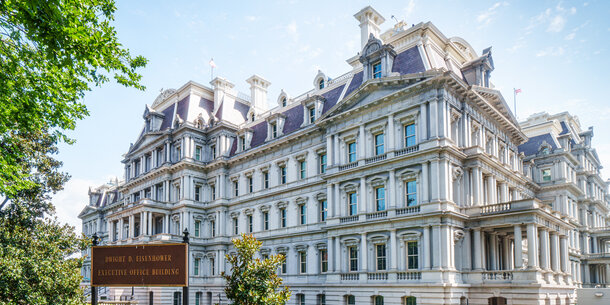The 2024 annual audit of the New York City Police Department’s compliance with a surveillance transparency law shows that once again, police are withholding information about how they surveil New Yorkers.
The Public Oversight of Surveillance Technology Act (POST Act), passed in 2020, was meant to provide the public with a better picture into the NYPD’s unchecked use of spying technologies such as drones, license plate readers, and digital fingerprint scanners. These technologies have serious implications for privacy rights and are especially worrisome in the hands of a department with a history of biased policing. The law requires public disclosures on their use and impacts — but the NYPD’s refusal to comply has rendered the law toothless.
This is only the tip of the iceberg. The police have long pushed back against attempts by lawmakers to establish surveillance oversight through the city’s independent police oversight office or state open records laws. Without stronger guardrails, the NYPD will continue to deploy risky and potentially biased technologies without accountability, undermining both New Yorkers’ rights and city and state lawmakers’ credibility as mechanisms for democratic accountability.
The POST Act requires the police to publish transparency reports when adopting a new surveillance tools, describing how they will use the technology and any potential impacts on civil liberties and rights. But, in practice, the police exploit provisions meant to provide flexibility, avoiding their obligations altogether. The 2024 audit of the NYPD’s compliance, carried out by the NYPD inspector general — an independent office tasked with investigating the department’s policies and practices — illustrates police failings.
To avoid drafting technology-specific policies, the department groups all technologies under one report, a practice that allowed them to deploy a new version of robot police dogs without public disclosure, shielding important information from the public such as the device’s potential to lead to serious injury or death. And a simple review of the NYPD’s guidance reveals inconsistencies between public reporting and what goes on behind the scenes: the internal policy on its dart gun used to tag GPS devices on moving cars, for example, describes additional restrictions on their use beyond what was shared pursuant to the POST Act, raising questions about the adequacy of its disclosures.
This lackluster reporting isn’t new. In 2022, the NYPD failed to disclose enough information for the inspector general to conduct its first-ever audit of police compliance with the act. Such poor reporting — labeled by the inspector general as “contrary to the spirit of” the act — can only be chalked up to laziness or intentional obfuscation by the NYPD.
The NYPD has stonewalled efforts to strengthen its compliance. It failed to testify at three city council hearings on its surveillance practices last year and accepted only one of 15 recommendations from the inspector general’s 2022 POST Act report. Meanwhile, the police still fail to publish required information. In its draft disclosure on its upcoming pilot program for weapons detection technology in the subway, the NYPD continues to use boilerplate language and avoid its responsibilities to consider the disparate impacts of its surveillance.
The police have also systematically and continuously undermined the authority of the inspector general’s office. The city council established the NYPD inspector general in response to public concern about the NYPD’s racially biased stop-and-frisk policy and its invasive post-9/11 surveillance of Muslim communities. The office showed initial promise, releasing groundbreaking investigations that led to real improvement: better enforcement against police chokeholds, stronger safeguards for sexual violence victims, and enhanced restrictions on police surveillance of political activity.
But continued police pressure has weakened the office. The NYPD has restricted the office’s access to records, prevented witness interviews, and excessively redacted key documents. Despite assurances of improved relations with the department, delayed reporting and deference to police narratives in the inspector general office’s reports on the NYPD’s gang database and police recording of public protests raise questions about whether the agency is bowing to police pressure. And in its months-overdue 2024 POST Act audit, the office explained that the NYPD had failed to provide requested documents related to its autonomous security robots.
The police have been similarly contemptuous of New York State’s Freedom of Information Law, which gives individuals insight into government operations by establishing a presumptive right to government records. We have seen firsthand how the police use delaying tactics, fail to disclose promised documents, and resist the common practice of discussions to determine the scope of disclosure. The Brennan Center went back and forth with the NYPD for almost four years to get information on its social media monitoring, ultimately suing the department to obtain documents. Others have been equally stymied. A separate 2023 lawsuit detailed how the police delayed 42,000 freedom of information requests over four years and racked up 50 years’ worth of response extensions.
This mosaic of surveillance accountability mechanisms has failed at the hands of the NYPD. With its defiance of the city’s surveillance transparency law, a weakened independent oversight agency, and repeated violations of New Yorkers’ right to public records, the NYPD continues to spend billions of dollars on increasingly complex surveillance technologies with little public insight into how they work, why they’re deployed, and whether they’re actually useful to the police.
Action is needed. Reforming the POST Act is a good place to start. The New York City Council must pass amendments that would give the act necessary teeth to hold the NYPD accountable. But this is just the beginning. Council members must also seek more information on obstacles facing the inspector general to ensure the police give the office the access and independence needed to effectively investigate NYPD practices. And state lawmakers must pass Freedom of Information Law reform bills that, among other necessary changes, establish stricter deadlines for agencies to respond so that requestors can avoid years-long police foot-dragging.
Lawmakers have tried to obtain transparency for how the NYPD surveils New Yorkers. They must try, try again.




